MercoPress. South Atlantic News Agency
Tag: British Antarctic Survey (BAS)
-
Tuesday, August 3rd 2021 - 19:51 UTC
Southern right whales at South Georgia acoustic messages, BAS Project report
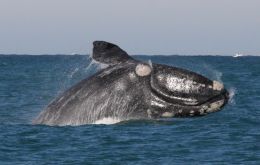
Scientists from British Antarctic Survey (BAS), Scottish Association for Marine Science (SAMS), and international collaborators have this week published the first detailed research on the sounds made by southern right whales on their high latitude feeding grounds at South Georgia.
-
Tuesday, August 3rd 2021 - 06:04 UTC
Polar vessels RRS Sir David Attenborough and RSV Nuyina meet during sea trials
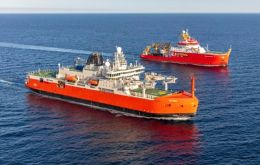
UK and Australia’s two new polar research ships got together off the coast of Falmouth in July during sea trials in preparation for their first Antarctic missions. The state-of-the-art Falklands flagged RRS Sir David Attenborough and RSV Nuyina will enable scientists to understand changes in our planet’s climate, oceans and marine life.
-
Thursday, May 20th 2021 - 07:11 UTC
Giant iceberg breaks away from the Brunt Ice Shelf in Antarctica
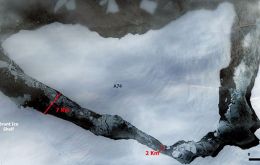
A giant iceberg, larger than the size of most European cities, has broken away from Antarctica, near a British research station, the British Antarctic Survey said on Friday.
-
Tuesday, March 2nd 2021 - 09:57 UTC
After thirty years of prolific research, RRS James Clark Ross makes final call to the Falklands
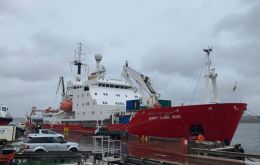
The RRS James Clark Ross (JCR) made her final call to her homeport of the Falkland Islands on Monday March first, since after thirty years of service, the JCR will be sold at the end of her 20/21 Antarctic season.
-
Saturday, December 19th 2020 - 08:50 UTC
Falklands' register for UK's new polar ship RRS Sir David Attenborough
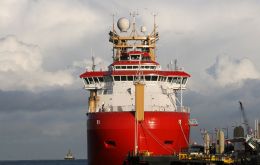
Britain’s new polar ship, the RRS Sir David Attenborough, has been registered on the British register of ships at Stanley, Falkland Islands.
-
Tuesday, December 15th 2020 - 12:47 UTC
BAS to study impact of giant A'68 iceberg and fresh water on South Georgia's ecosystem
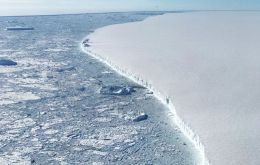
A research mission to determine the impact of the giant A-68a iceberg on one of the world’s most important ecosystems gets underway next month. A team of scientists, led by British Antarctic Survey (BAS), will set sail on the National Oceanography Centre’s (NOC) ship bound for the sub-Antarctic island of South Georgia.
-
Thursday, October 22nd 2020 - 08:50 UTC
Britain's new polar ship Sir David Attenborough begins sea trials
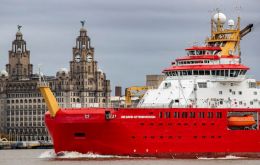
Britain's new polar ship, RRS Sir David Attenborough, has left her Merseyside construction yard. Sirens and accompanying tugboats marked the Attenborough's departure from builder Cammell Laird's wet dock at Birkenhead. Four years in the making, the £200m vessel is about to venture out on a series of sea trials.
-
Monday, June 29th 2020 - 06:56 UTC
Funding boost for BAS space weather monitoring
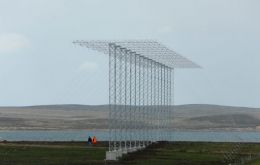
Space weather research at British Antarctic Survey (BAS) received a funding boost of around £2M from the SWIMMR (Space Weather Instrumentation, Measurement, Modelling and Risk) program.
-
Friday, May 1st 2020 - 07:18 UTC
Falklands: Stanley airport again winter home for BAS aircraft
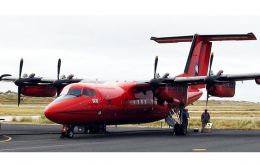
Aeroplane spotters in the Falklands will once again have the opportunity to temporarily witness the once familiar sight of the British Antarctic Survey (BAS) Twin Otter sitting on the Stanley Airport tarmac.
-
Thursday, April 30th 2020 - 07:55 UTC
Plastic pollution continues to reach sub-Antarctic islands
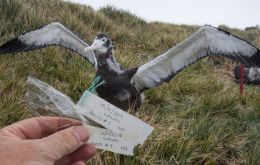
Food wrapping, fishing gear and plastic waste continue to reach the Antarctic. Two new studies into how plastic debris is reaching sub-Antarctic islands are published in the journal Environment International.
